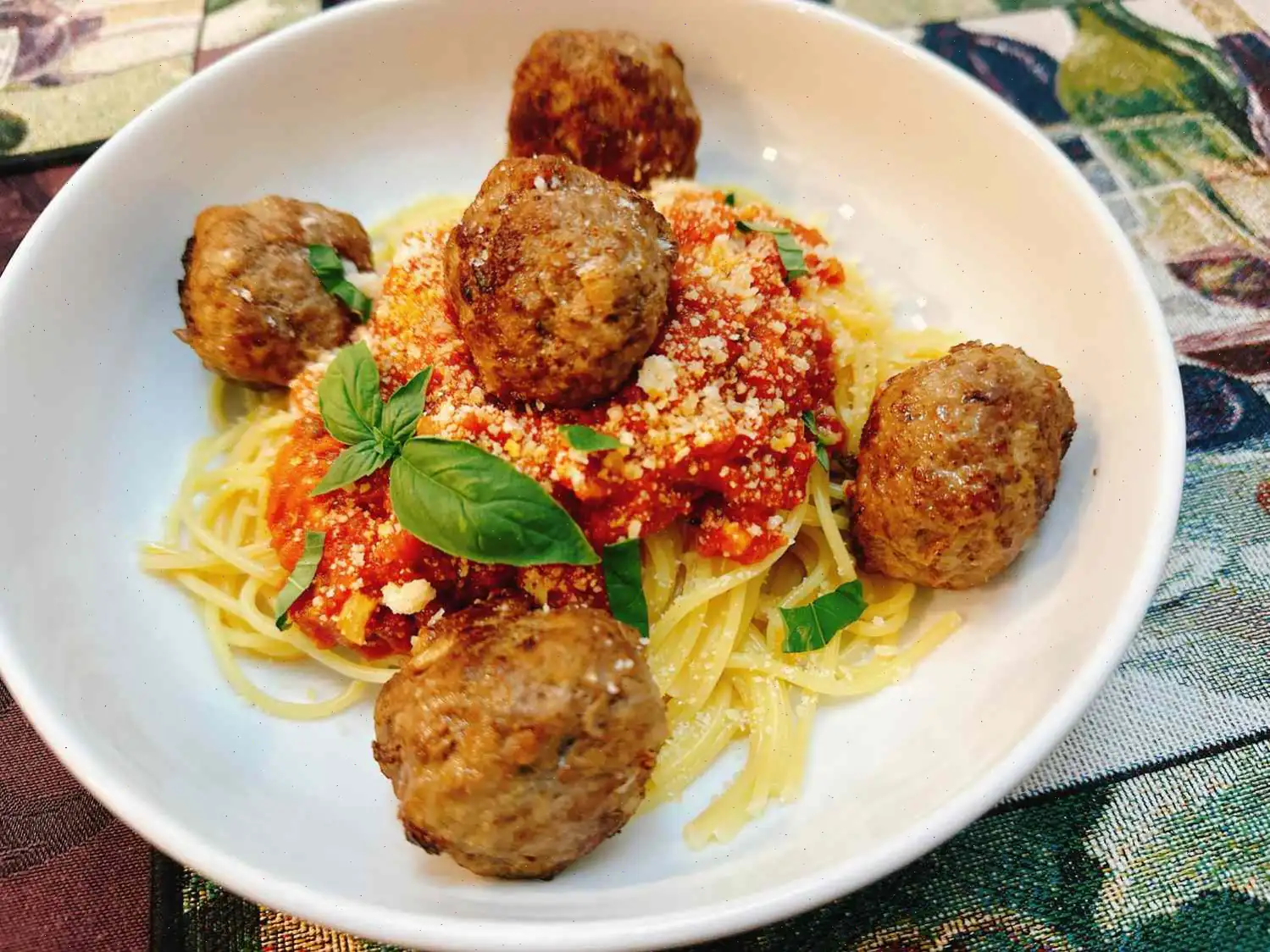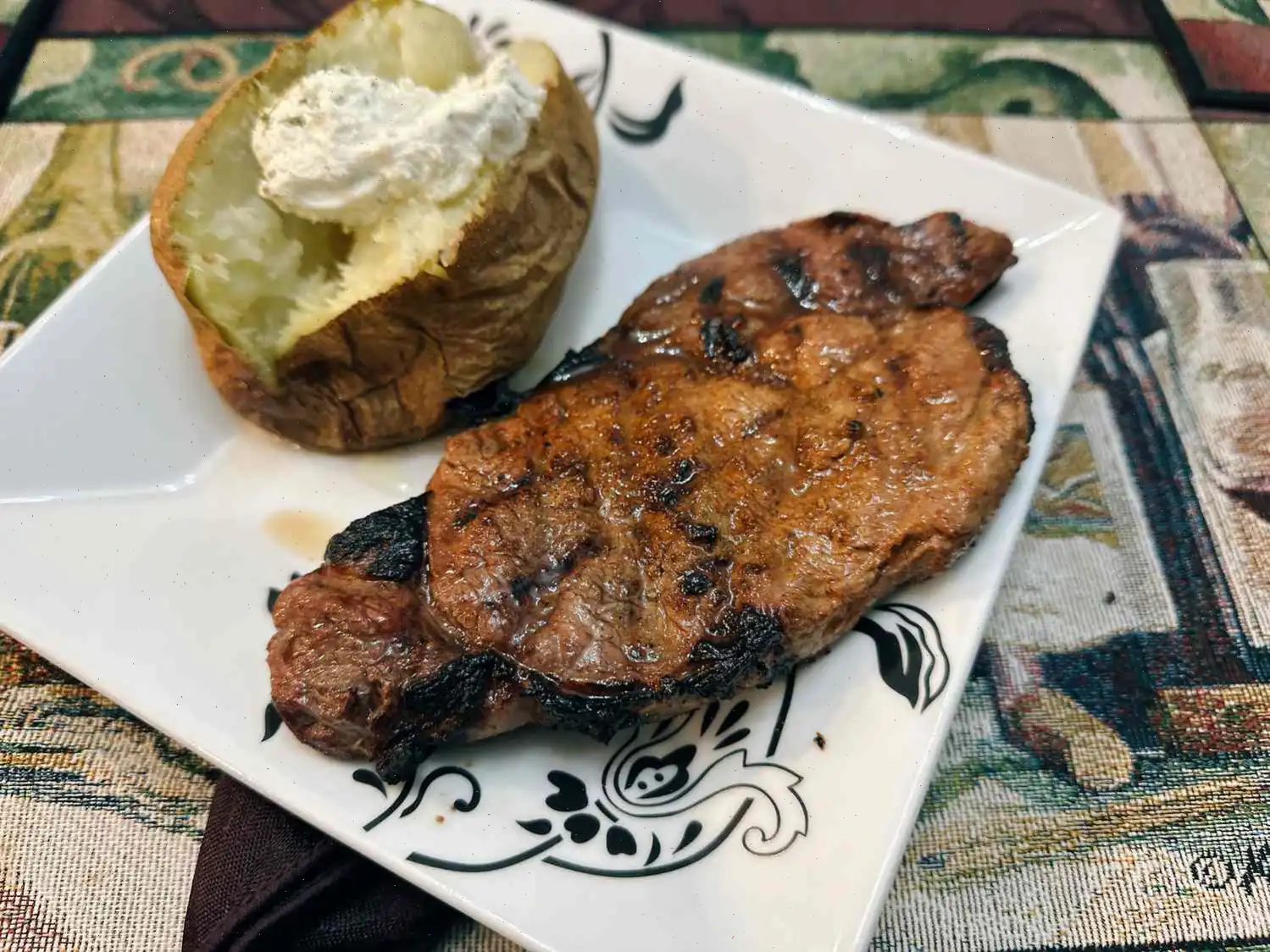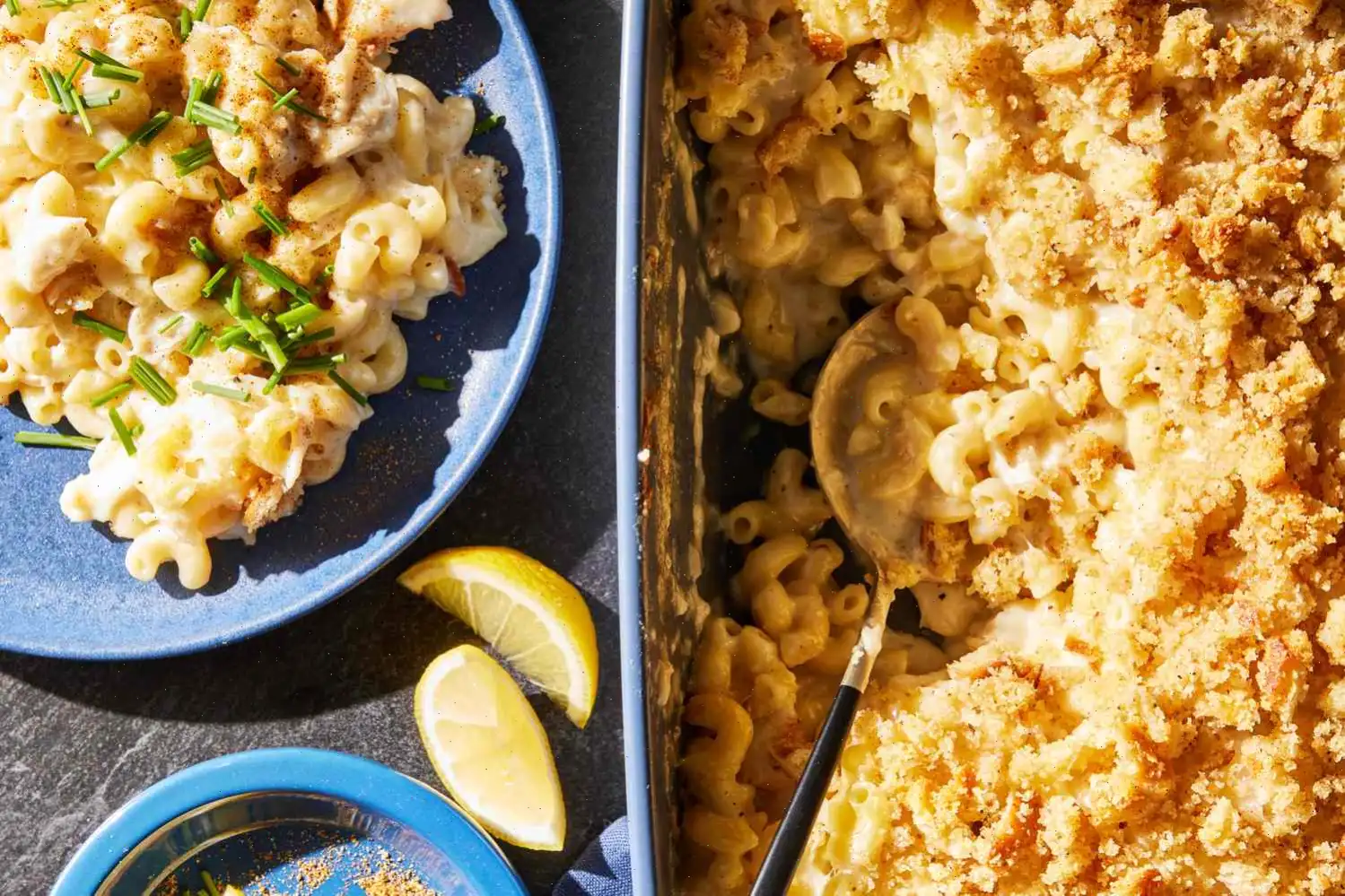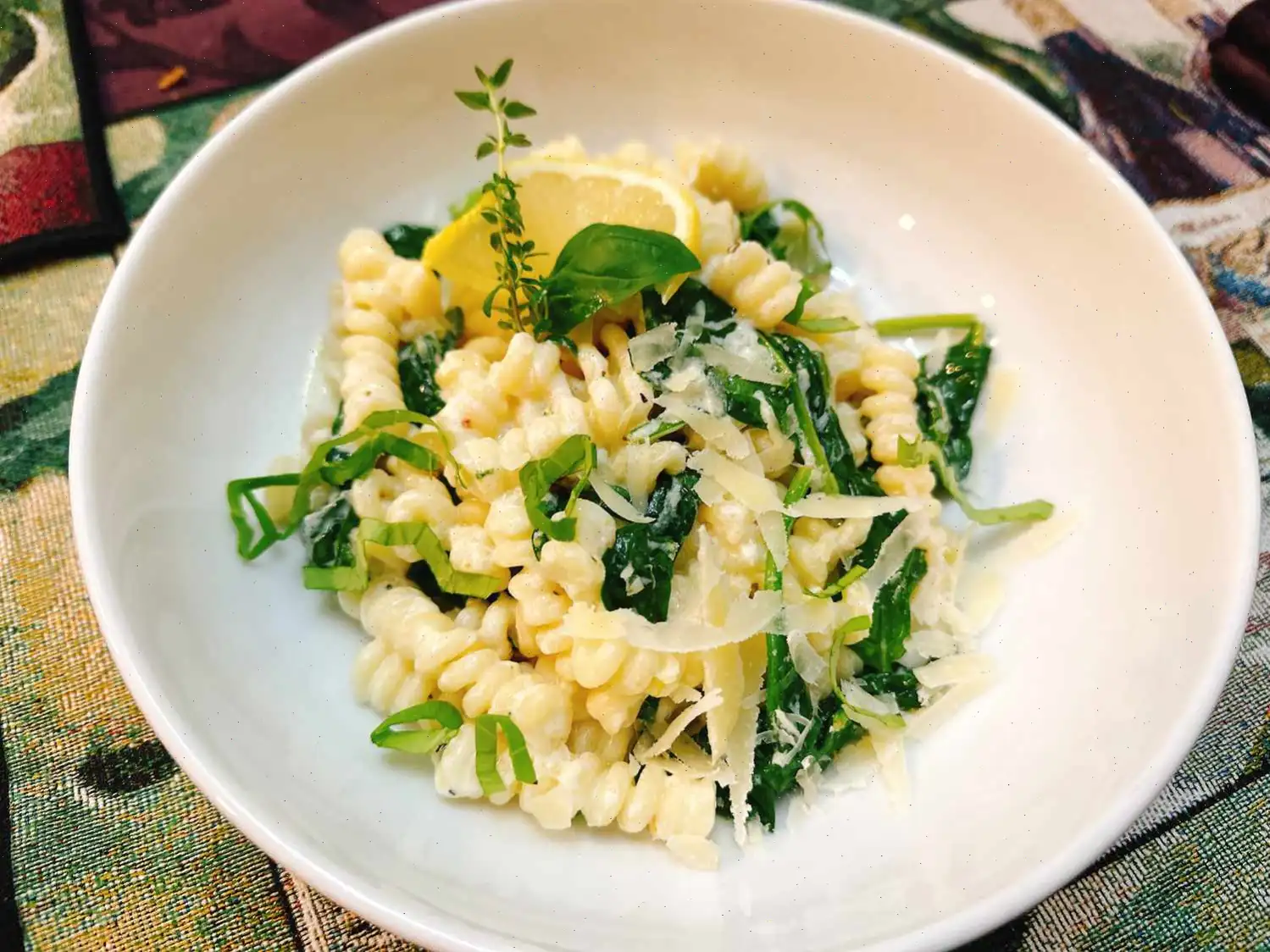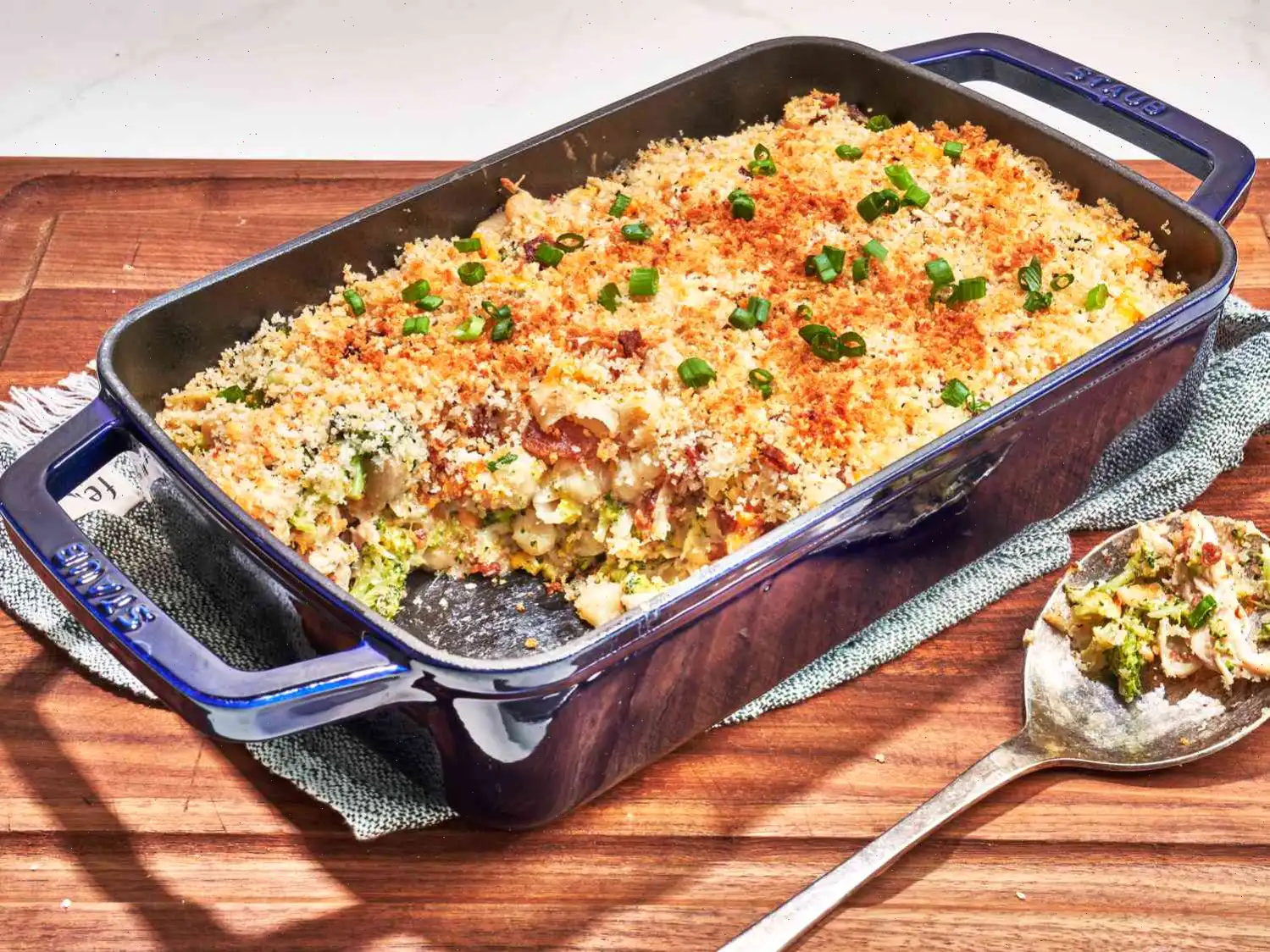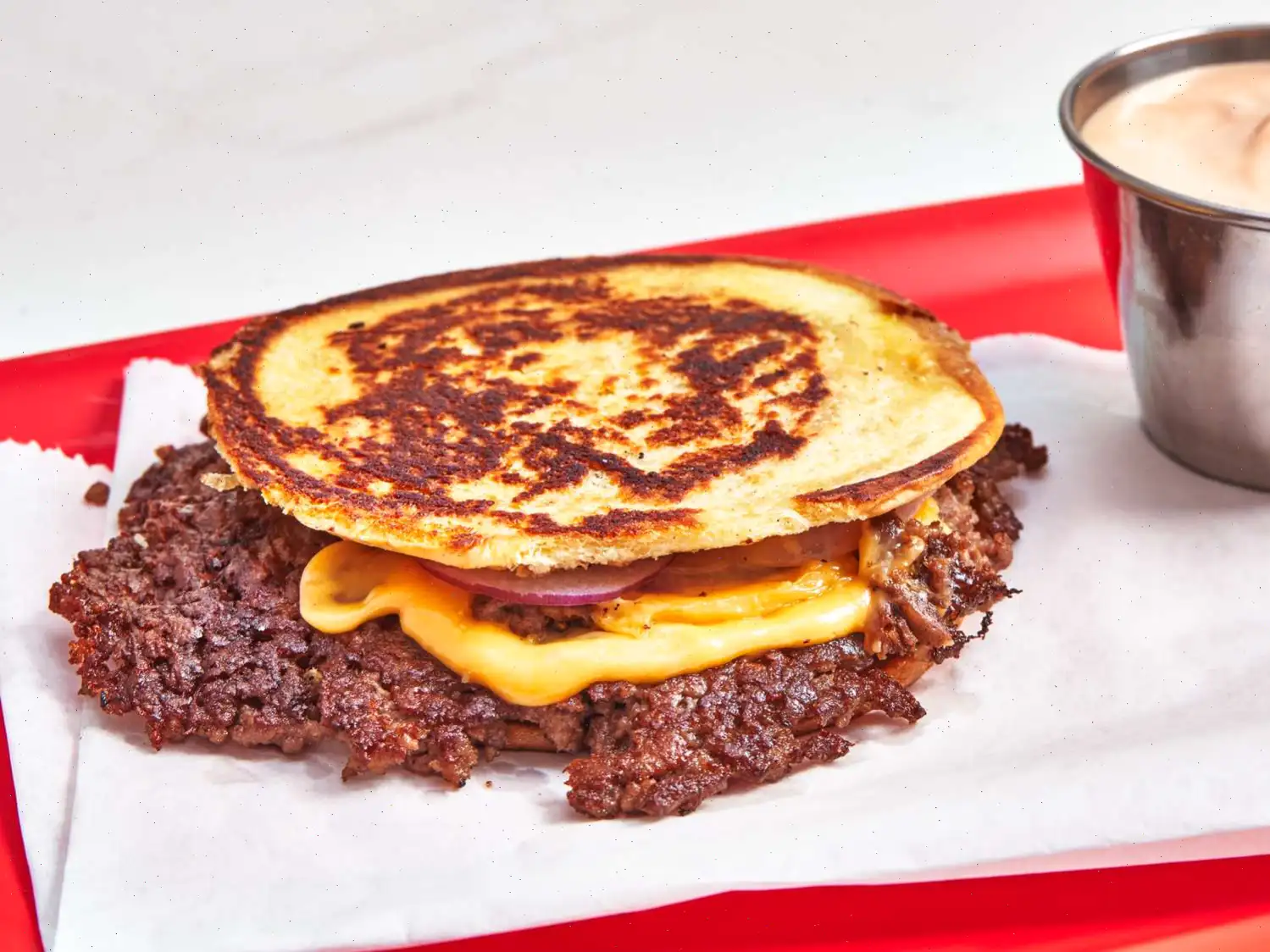
Receta de Albóndigas en Sartén
Estas albóndigas en sartén son un plato rápido y fácil, perfecto para una noche de semana ocupada. Hechas con carne molida, pan rallado y una mezcla de hierbas y especias, se cocinan en la sartén hasta que estén doradas y luego se cuecen a fuego lento en una salsa de tomate sabrosa. Sírvelas con pasta o con pan crujiente para una comida deliciosa que toda la familia disfrutará.
Estas albndigas son tiernas por dentro, doradas por fuera y muy fciles de preparar. Funcionan igual de bien como plato principal que como aperitivo para compartir.
Ingredientes (5 raciones)
- 450 g de carne de res molida
- 1 huevo grande
- 1 cucharada de leche (ms si hace falta)
- 60 g de pan rallado tipo panko
- 1/2 cebolla mediana
- 60 g de queso parmesano rallado fino
- 1/2 cucharadita de ajo en polvo
- 1/2 cucharadita de sal
- 1/4 cucharadita de pimienta negra recin molida
- 3 cucharadas de aceite vegetal o de canola
- 2 cucharadas de mantequilla sin sal
Preparacin
- En un bol pequeo, bate el huevo junto con la leche hasta obtener una mezcla homognea. Aade el panko y deja reposar unos instantes para que se hidrate bien.
- Coloca la carne molida en un recipiente amplio y vierte encima la mezcla de huevo y pan.
- Pica la cebolla muy fina, casi hasta que quede cremosa. Mzclala con el parmesano, el ajo en polvo, la sal y la pimienta, y agrgala a la carne.
- Integra todos los ingredientes con las manos, sin amasar en exceso. Si notas la masa muy compacta, incorpora un chorrito extra de leche.
- Forma bolas del tamao de una nuez grande, procurando que todas queden similares para una coccin uniforme.
- Calienta una sartn grande a fuego medio con el aceite y la mantequilla. Cuando la grasa est caliente y burbujeante, coloca las albndigas sin amontonarlas.
- Dralas girndolas cada pocos minutos hasta que estn bien selladas por todos los lados y completamente cocidas en el centro, aproximadamente 12 minutos en total.
- Si la sartn no es lo suficientemente grande, cocnalas en tandas para que se doren correctamente.
- Retira las albndigas y colcalas sobre papel o una bandeja para eliminar el exceso de grasa.
- Srvelas calientes con pasta, salsa de tomate, arroz o solas como bocado contundente.
Informacin nutricional aproximada (por racin)
- Caloras: 425 kcal
- Grasas totales: 31 g
- Grasas saturadas: 11 g
- Colesterol: 135 mg
- Sodio: 476 mg
- Carbohidratos: 6 g
- Azcares: 1 g
- Protenas: 28 g
- Calcio: 91 mg
- Hierro: 3 mg
- Potasio: 405 mg
Los valores nutricionales se calculan sobre una dieta diaria de 2.000 caloras y pueden variar segn los ingredientes utilizados.
Las albndigas a la sartn son una versin moderna de un plato atemporal con races que se extienden a mltiples culturas. El concepto de combinar carne molida con pan rallado, huevos y especias ha existido durante siglos en Europa y el Medio Oriente. A finales del siglo XIX y principios del XX, los inmigrantes italianos trajeron su versin de las albndigas a Amrica, lo que evolucion en una receta rpida y apta para sartn, perfecta para las cocinas caseras. Cocinar albndigas en una sartn permite que se forme una capa exterior crujiente y caramelizada, mientras se mantiene el interior jugoso, lo que lo convierte en una adaptacin prctica para hogares ocupados.
Variaciones Regionales
Aunque las albndigas a la sartn se asocian comnmente con la cocina estadounidense hoy en da, los toques regionales varan ampliamente. En los Estados Unidos, a menudo se sirven con pasta y salsa marinara, reflejando la influencia italo-estadounidense. En los pases escandinavos, las albndigas a la sartn pueden incluir una mezcla de carne de res y cerdo, servidas con salsas cremosas y mermelada de arndano rojo. En el Medio Oriente, las albndigas especiadas pueden incorporar comino, cilantro y hierbas frescas. Cada regin adapta el concepto bsico de las albndigas a los sabores e ingredientes locales, creando variaciones nicas y memorables.
Cmo se Diferencian de Platos Similares?
A diferencia de las albndigas tradicionales horneadas o cocidas a fuego lento, las albndigas a la sartn se fren en la sartn, lo que les da una textura y sabor distintivos. La combinacin de mantequilla y aceite en la sartn favorece el dorado y un sabor rico, algo que es ms difcil de lograr solo con el horneado. Aunque el pastel de carne, otro plato de carne molida, comparte ingredientes similares, las albndigas son ms pequeas, verstiles y a menudo se sirven como aperitivos, en sndwiches o como parte de un plato principal. Las albndigas a la sartn tambin se diferencian de las "polpette" italianas en que se cocinan con frecuencia individualmente en una sartn poco profunda, en lugar de ser cocidas suavemente en salsa.
Ocasiones Tpicas para Servirlas
Las albndigas a la sartn son muy verstiles y aparecen tanto en entornos informales como formales. En casa, suelen servirse con pasta, arroz o verduras para cenas entre semana. En los restaurantes, pueden presentarse como aperitivos, a menudo acompaadas de salsas para mojar o guarniciones. Durante las fiestas o reuniones familiares, las albndigas a la sartn son populares como bocadillos o parte de comidas tipo buffet, muy valoradas por su facilidad de preparacin y su gran atractivo.
Datos Interesantes
- Las albndigas a la sartn se pueden hacer con diferentes tipos de carne, como res, cerdo, pollo o pavo, lo que las hace adaptables a diferentes preferencias dietticas.
- La adicin de pan rallado panko crea una textura ms ligera que el pan rallado tradicional, lo que ayuda a que las albndigas se mantengan tiernas mientras conservan un exterior crujiente.
- A pesar de su simplicidad, las albndigas a la sartn se consideran un "plato reconfortante" en muchas culturas, evocando a menudo recuerdos de comidas caseras y tradiciones familiares.
- El mtodo de coccin en sartn permite a los cocineros controlar el dorado y la sazn con precisin, lo que convierte esta versin en la favorita de quienes prefieren tcnicas de cocina prcticas.
- Las albndigas a la sartn no solo son deliciosas, sino tambin muy personalizables, permitiendo la adicin de queso, hierbas, especias o salsas para adaptarse a los gustos personales.
Preguntas frecuentes sobre Receta de Albóndigas en Sartén
Compartir
Comentarios
Deborah Cruz
08/05/2023 04:09:12 AM
¡Esta receta de albóndigas es absolutamente fantástica! Se ha convertido en una receta favorita de la familia, y cada vez que preparo albóndigas, recurro a esta receta. Me gusta dorarlas en la estufa sin cocinarlas completamente, para luego dejarlas hervir en la olla de cocción lenta con salsa marinara hasta que estén perfectas. ¡Delicioso!
Melissa Sanchez
04/24/2023 08:49:50 AM
¡Estas fueron las mejores y más sencillas albóndigas que he hecho, y definitivamente las haré de nuevo!

